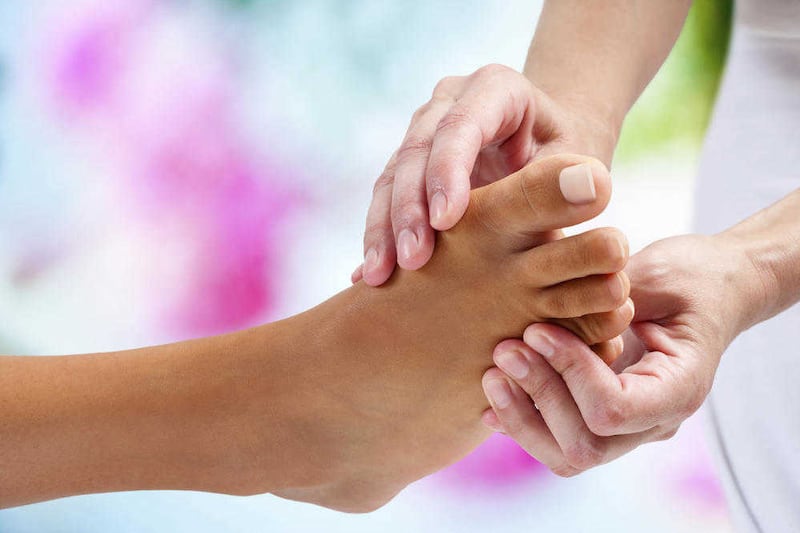THE importance of evidence-based medicine has increased year on year and I am always thrilled to learn of such evidence being generated in the world of complementary health. I was delighted to be contacted by an English reflexologist, who has taken her field of study all the way to PhD level and who is coming here to share some of her knowledge in a weekend course.
The course is primarily around the use of reflexology to cope with pain and is the result of a thesis which incorporates the study of pain within a wide range of issues, from breast cancer, fibromyalgia, surgery, anxiety and even pain in infants.
"Across the UK services for pain management are overstretched, underfunded and in some cases extremely limited," Dr Carol Samuel writes. "Many patients are suffering from years of pain which despite medication continues, affecting them not just physically but psychologically, in a continuous spiral."
In 2010 Carol completed a research programme following eight years of study which investigated the efficacy of reflexology in the management of acute pain.
"My research showed that reflexology was significantly able to improve both pain threshold and pain tolerance levels when compared to controls," she says.
"This suggested that some people living with pain may be able to reduce the amount of medication they consume for their pain on a daily basis, which may result in a better overall quality of life. Most of the patients I see in my clinic tell me they don’t want to be on pain medications for the rest of their lives and are keen to find a way in which they can reduce or give up their medication."
While the remit of a reflexologist, or any complementary therapist, is never to advise a patient to stop taking any form of medication, many patients are, with the support of their usual healthcare practitioner, able to reduce their medication and enjoy a better quality of life.
"Pain is a stressful experience. It can create frustration and anxiety, and increase inflammation as well as impacting on the immune system," Carol says.
"Reflexology has proven to be of benefit in stress management and the practitioners’ skill and knowledge in this area has a role in the overall pain experience. For example, in one study where fibromyalgia participants received 10 sessions of weekly reflexology, they reported a decrease in their pain and in the number of areas in which they were experiencing that pain."
There are many good reflexologists working here – ask around for recommendations or check on www.naturaltherapiesni.com.
If you are a practitioner and want to learn more – and, seriously, how often do you get to access someone with that incredible level of knowledge? – you can join Carol's Supporting the Client in Pain with Nerve Reflexology workshops in Belfast, in the Marie Curie Hospice, on June 25/26, in Dublin on October 8/9 or the course in Breaking the Barriers of Pain with Reflexology in Donegal on June 27.
The course costs £220, is advised for therapists with more than six months' clinical practise and carries CPD points. Carol recommends you contact the website a month before as there is recommended reading prior to the course. For further details visit: www.reflexmaster.co.uk, or text Carol on 0798 9768 774.



